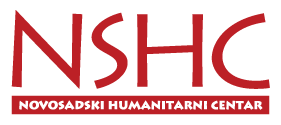
More and more foreigners are coming to live in Serbia. Among them are forced migrants – those who left their country due to war conflicts and fear of persecution. Several thousand of them, mostly young people and families, also came to Novi Sad. NSHC’s experience has shown that the majority are only in contact with their compatriots, while opportunities for integration into the local environment are rare. Although they were forced to leave their homes, they do not have protection and support in Serbia when they need it. There are a few organized activities to support them in finding their way in a new environment. Because of the above, foreigners often remain isolated within their own circle of compatriots, or even isolated within it, without many points of contact with the local environment. There is a great need for information services, assistance in communicating with the community, covering material needs, and overcoming psychological crises in the situation of forced migration. Opportunities to meet the local population and get involved in community activities are also needed.
The goal of the project “Support for the integration of vulnerable foreigners into the local community” is to contribute to the protection of vulnerable foreigners in Serbia, access to basic rights and the promotion of their inclusion in the sustainable social and economic development of the region. This goal will be contributed to through a higher level of integration of foreigners and the improvement of the capacity of the local community to support vulnerable foreign nationals.
NSHC analyzes the specific current needs of the target group when it comes to integration into the local environment, as well as the current offer of services and support in the local community. We also includes foreigners in our volunteering programs as a form of support in their local integration. NSHC plans to organize events of intercultural exchange and cooperation, in the planning, organization and implementation of which foreign citizens and local residents will participate. The events will aim to get to know each other and connect, and the exchange will include topics related to culture, customs and traditions, cooking, history, art, language and other topics of interest to both groups. NSHC will get in touch with local civil society organizations in Novi Sad in order to discuss the possibilities of networking organizations that provide support to vulnerable foreign nationals. We will also inform the local community and the general public about the situation of vulnerable foreign citizens in our country, with the aim of increasing the visibility of topics related to the promotion and protection of the human rights of foreigners. In this way, the community will be encouraged to greater understanding and solidarity, and it will be easier for foreigners to join the social life of the community.
This six-month project (April 1 – September 30, 2024) is supported within the project “FOSTER: Inclusion of Foreigners in Western Balkans – access to social and economic rights” as a regional response 7 a civil society organization affiliated to the Balkan Refugee and Migration Council (BRMC) and the Danish Refugee Council (DRC). The goal is to respond to common challenges related to migration in the Western Balkans region, with a focus on basic human rights of various vulnerable groups of migrants and foreigners, especially their access to social and economic rights.
The “FOSTER” project is financed by the European Union as part of the EU civil society and media program for the benefit of the Western Balkans and Turkey for 2021-2023. (IPA III) within the lot “Human rights, anti-discrimination and intercultural dialogue”.
